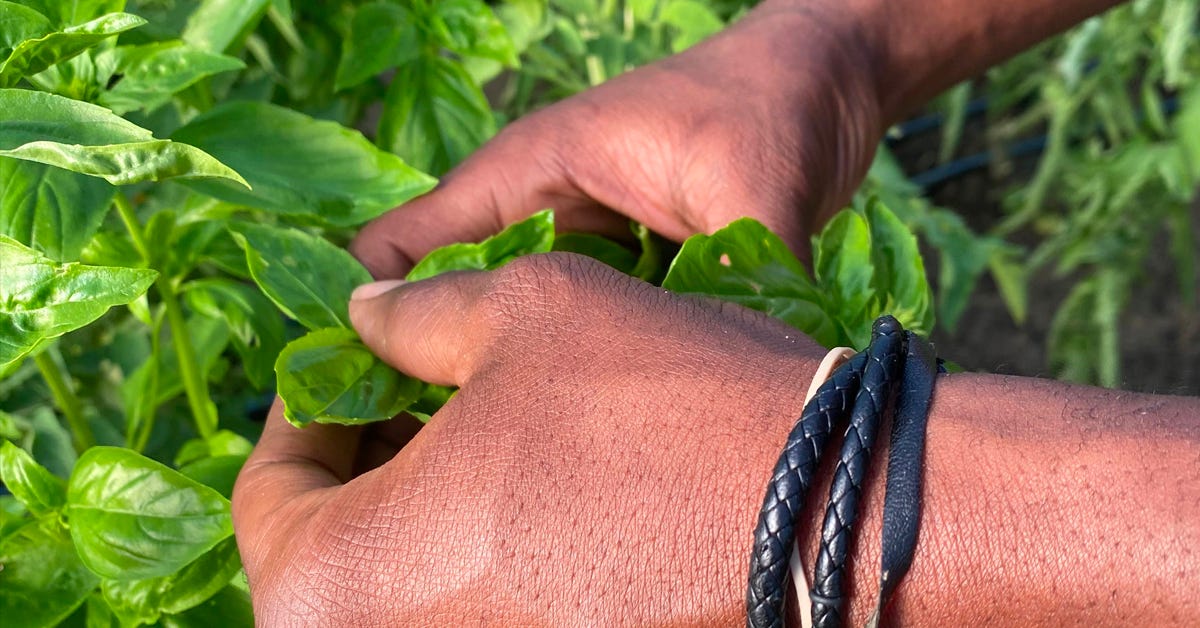People living in cities need fresh, healthy produce, too. That’s why gardener, farmer, and chef Walter Bonham founded The Food Lab in his hometown of Mansfield, Ohio. Creating more urban farmers can be a sustainable solution to food insecurity, he says, and a straightforward way to get healthy produce to underserved communities. He’s one of a few area farmers testing a new model for urban agriculture, working together in a co-op structure supported by the Ohio State professor Kip Curtis and a grant from the D.C.-based Foundation for Food and Agriculture Research.
Bonham’s ultimate goal: to seed urban micro-farms in food deserts across the country.
Why does America need more farmers?
We have very few farmers to produce so much food for us as a nation. If we try to localize our networks a little bit more, it’s more sustainable for us as communities and individuals. We don’t have to count on so much food being shipped in and we can create job opportunities for people.
We know millions of dollars of produce are coming into our community. We can calculate that. Why can’t we produce some of that food ourselves? Why can’t we capture those dollars through entrepreneurship? Let’s see if we can create a system that works. The way that we’re doing it allows us to think about farming differently—to think about farming collectively. We can selectively make an impact on our community and add a new supply chain that wasn’t available before. We are able to provide fresher and better produce as well.
How has the current pandemic affected your work?
Local farming helps shorten the supply chain, and we’ve seen how the supply chain was affected by the pandemic. Some of the big companies processing food, they were dramatically affected by the virus.
The pandemic actually created more demand for us at our co-op, Richland Gro-Op. It showed us that you can’t go wrong growing food in a pandemic and reinforced the need for micro-farms. People are still going to need to eat. We’re a lot more nimble and localized, being able to work hand-in-hand here in Mansfield.
Why can’t we produce some of that food ourselves? Why can’t we capture those dollars through entrepreneurship? Let’s see if we can create a system that works.
Why do other urban farms fail?
I was part of this project when it was just on paper, doing a lot of that research and figuring out how to make this sustainable. It’s an ongoing challenge that we continue to work on. I think one reason urban farms fail is by not being able to sustain a market. I think another big reason they fail is that it’s hard. Doing it in the city is a lot different than doing it in rural settings. And a lot of urban farming movements are more charity-based. They’re more urban gardens than urban farms.
The big difference between farming and gardening is that gardeners are not growing for particular markets and businesses and customers. If you have people that you’re selling your produce to, then you’re farming. We’re treating this like a business, and we’ll also address those issues of food insecurity. We want to help incubate farmers and make money through the co-op.
Last year was your pilot growing season and this year is your first full season farming. What has your experience been as a first-time farmer?
We just officially started, as individual farmers and selling as a cooperative, in March. We finished our training at the Ohio State campus in Mansfield in February.
That training allowed us to get an idea of what farming really looks like, growing from seed to harvest and starting the next plants. We had to make sure that we really wanted to do this. They had a micro-farm for us, so we scaled everything off of that. We were growing crops that we are growing now. Right now, I’m growing cucumbers, tomatoes, parsley, and basil. I already grew spinach, carrots, lettuce, and radishes this year. Between the farms in the co-op, we grow nearly a dozen different plants, and different varieties among those plants. And we grow a lot of the same things together, so we can offer greater value.
Now that we’re through the training, there’s a lot of individual responsibility. It’s really cool to see it all come together, but it’s all still so new. I feel like I’m so ready for next year.



